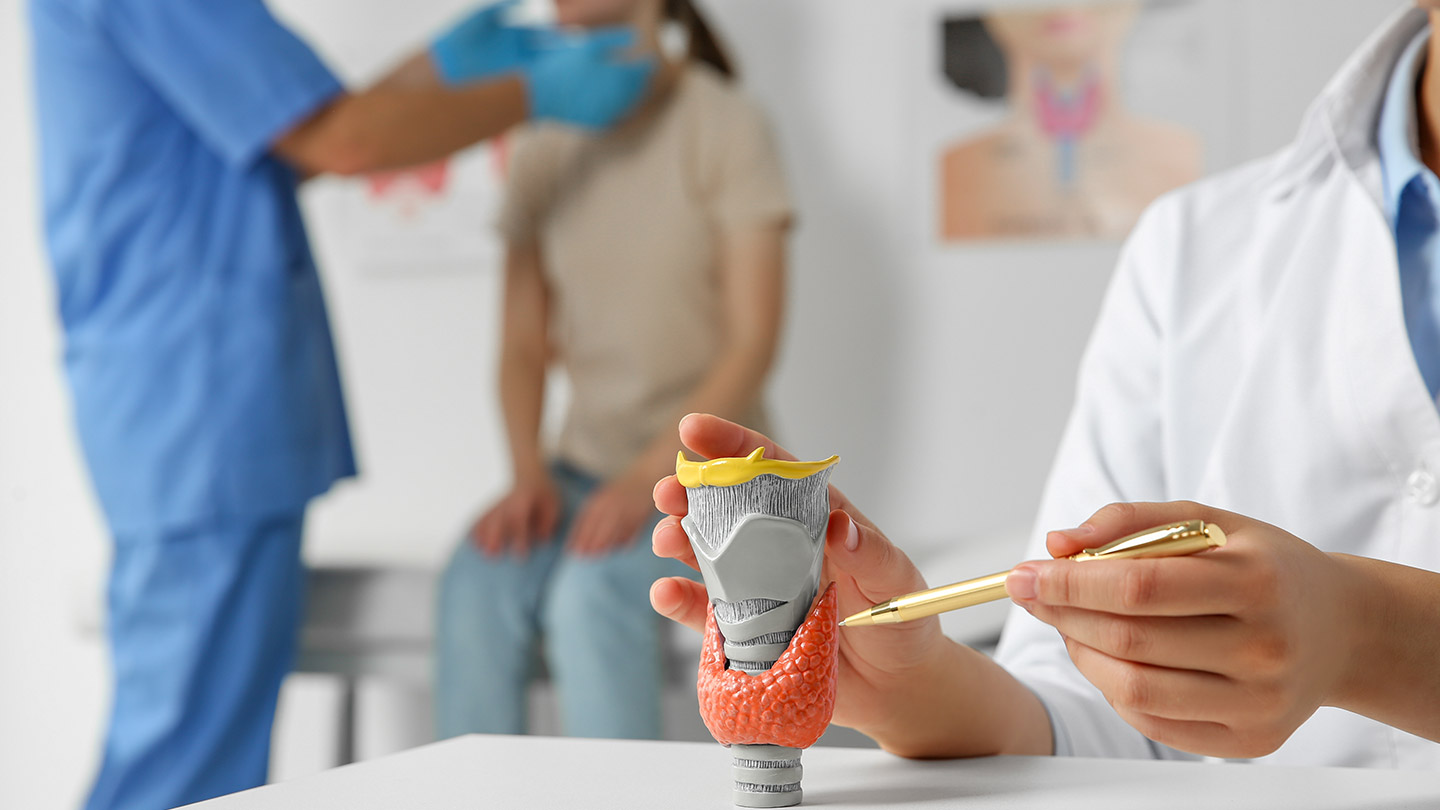Medical
4 Ways to Support Your Thyroid Health
Your thyroid might be tiny, but it has a huge impact on your energy, mood, weight, and sleep. Here’s how to care for it.

Have you ever felt like your body is moving in slow motion while your to-do list sprints ahead? That was me a few months ago. Tired by 11 a.m., brain fog that even coffee couldn’t cut through, and this nagging weight that refused to budge. Blood tests? Normal. But something was off, and it turned out to be my thyroid.
I have since learned that the thyroid is a tiny butterfly-shaped gland with heavyweight responsibilities. It regulates energy, mood, metabolism, and even your menstrual cycle. So, when it’s out of sync, everything else goes haywire. Here are four ways in which I have supported my thyroid and might help you too.
Related story: Everything You Need to Know About The Thyroid
1. Your Thyroid is a Picky Eater
When my friend Anushka asked, “Does my thyroid really care what I eat?” I laughed and said, “More than your ex ever did.” Seriously, though, your thyroid thrives on iodine, selenium, zinc, iron, and vitamins A and D.
Let’s start with iodine. It’s the main building block of thyroid hormones. But too little or too much can cause problems. In the 1920s, the U.S. started adding iodine to table salt, and goitre cases plummeted nearly 90 per cent in Michigan alone. Then there’s selenium, a powerful ally when it comes to supporting your thyroid. Your thyroid holds the highest concentration of selenium in the body, and just one Brazil nut (if not easily available, you can go with almonds, walnuts or cashews) can meet your daily needs. It helps activate thyroid hormones and protects the gland from oxidative stress. Don't forget zinc and iron, either. Without them, your thyroid can’t properly make or convert hormones.
What to do? Build a nutrient-dense plate: eggs, leafy greens, seaweed (in moderation), nuts, seeds, fish, dairy, and whole grains. And yes, use iodised salt, but don’t overdo it. Your thyroid doesn’t need a salt bomb, just a sprinkle.
Related story: Reverse Thyroid Condition with Lifestyle Modifications
2. Chronic Stress? Your Thyroid Feels It Too
I still remember saying to my doctor, “I feel like I’m doing everything right, but I’m still tired and moody.” He asked me to tell me about my stress. Turns out, chronic stress can trigger or worsen thyroid dysfunction. A 2018 study in the Thyroid linked higher stress levels to Hashimoto’s thyroiditis, an autoimmune condition that targets the thyroid. When you are under stress, your body releases cortisol, a hormone that tells your body to conserve energy. Translation: it slows metabolism and messes with thyroid hormone conversion.
What to do? Make stress relief part of your daily hygiene. Try breathwork, meditation, journaling, yoga, or just dancing to your favourite song. Even laughing with a friend or spending 15 minutes outdoors can dial down cortisol.
Related story: Symptoms of Slow Thyroid Function
3. Gentle Movement Can Wake Up Your Metabolism
My friend Anushka said, “But I’m too tired to exercise.” I got it. Hypothyroid fatigue is no joke. But here’s the twist: the right kind of movement can actually improve thyroid function. Exercise boosts your body’s sensitivity to thyroid hormones and helps reduce inflammation, which plays a role in autoimmune thyroid issues. However, over-exercising, especially paired with extreme diets, can do the opposite. A 2019 review showed that overtraining can suppress T3 (your active thyroid hormone) and elevate stress hormones.
What to do? Aim for a ‘Goldilocks’ routine: not too intense, not too lazy. Brisk walks, yoga, swimming, and strength training twice a week are excellent choices. Exercise should leave you feeling energised, not exhausted.
Related story: Managing Thyroid Disorders With Exercise
4. Sleep Like Your Hormones Depend on It
Do you wake up groggy even after 8 hours? Or sleep like a rock but still feel zapped? Your thyroid and sleep hormones are on a tight schedule, and they depend on each other. A 2019 study in the Journal of Clinical Medicine found that both too little (<7 hours) and too much (>9 hours) sleep increased the risk of thyroid dysfunction. Poor sleep also affects your immune system, which is a big deal because most thyroid problems are autoimmune in nature.
What to do? Set a consistent sleep-wake cycle, keep screens away an hour before bed, and build a calming bedtime routine. Herbal tea, soft music, or stretching works wonders. Also, don’t take your thyroid meds right before bed; morning is usually best for absorption.
Related story: Important Tests For Thyroid Issues
Your thyroid isn’t trying to ruin your life. It’s whispering, “Hey, I need a little help here.” Whether through food, rest, movement, or stress relief, each small choice adds up. With the right support, your thyroid can go from sluggish to strong. And when that happens, your body, mood, and energy finally start singing in sync again.
Regular health checks are essential for everyone, but they are particularly important for individuals who are at risk of or already have thyroid issues. Taking regular health checks can help detect thyroid problems at an early stage, when it is easier to manage and treat. With the UR.Life HRA, we help you to invest in your well-being through seamless interventions and targeted medical treatments. Our holistic wellness approach caters to all aspects of your well-being. We ensure that you can bring your whole self to work.
With our medical professionals by your side, routine health check-ups will never be an issue. Advanced laboratory technologies back UR.Life’s Occupational Health Centres (OHC), with highly qualified experts/technicians, we’re committed to delivering trusted and quality recommendations, modifications and advice to you.
EXPLORE MORE
You may be unknowingly increasing your anticholinergic burden. We break down the science, the risks, and safer alternatives.
True well-being goes beyond surface-level self-care. It’s about consistent habits, emotional resilience, and intentional living.
Scrolling in bed may feel harmless, but studies show it can delay sleep, disrupt your body clock, and impact your health. Discover why keeping devices out of bed is the simplest step to better rest.
Just one minute a month could make all the difference. A simple self-exam can help detect testicular cancer early, when it’s most treatable and could quite literally save your life.








.jpg)
.jpg)
